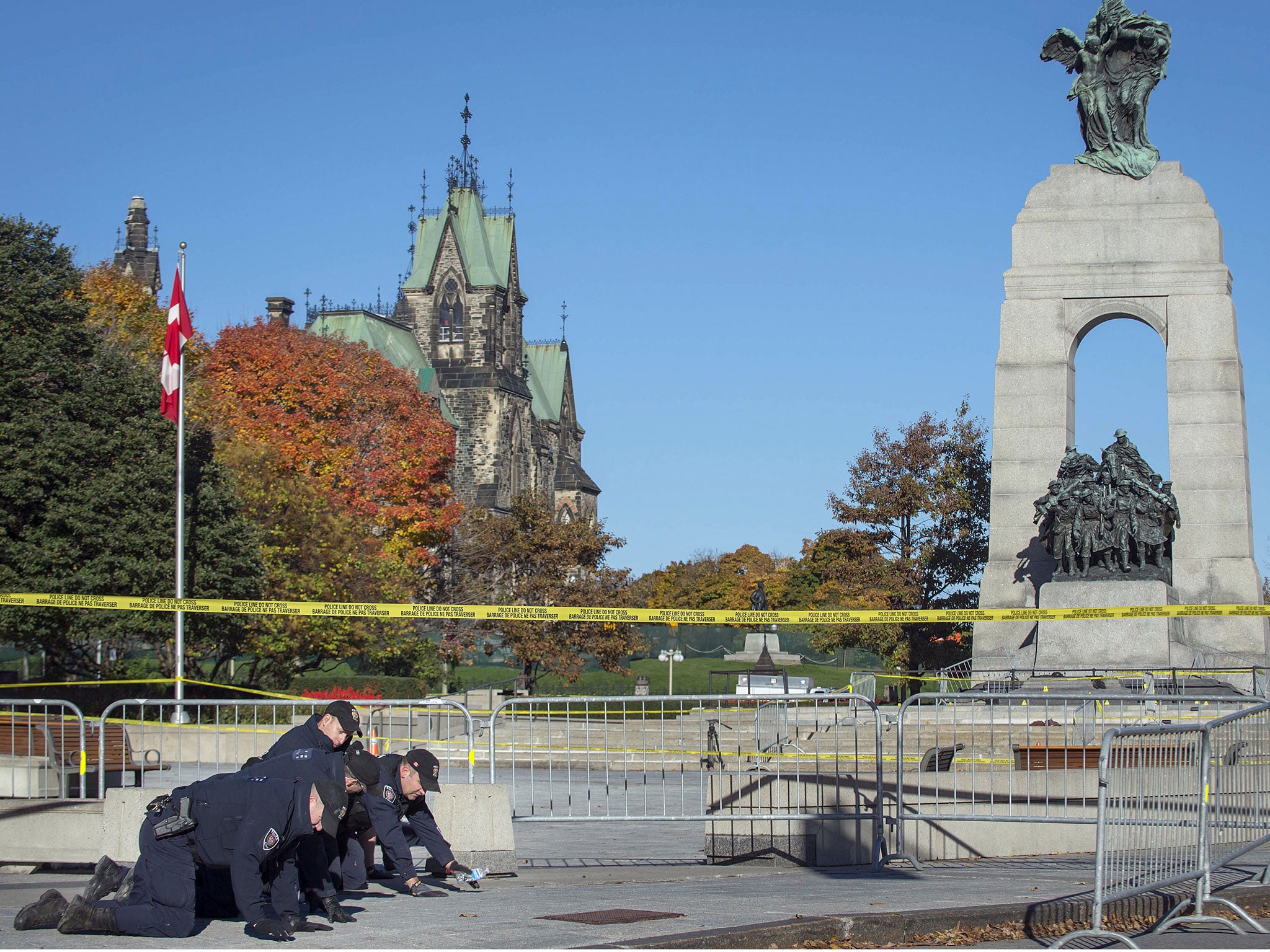Ottawa shootings: Suspect Michael Zehaf-Bibeau attempted to rob McDonald's to beat drug addiction in prison
Zehaf-Bibeau had asked police to arrest him hours before he tried to hold up the restaurant

Your support helps us to tell the story
From reproductive rights to climate change to Big Tech, The Independent is on the ground when the story is developing. Whether it's investigating the financials of Elon Musk's pro-Trump PAC or producing our latest documentary, 'The A Word', which shines a light on the American women fighting for reproductive rights, we know how important it is to parse out the facts from the messaging.
At such a critical moment in US history, we need reporters on the ground. Your donation allows us to keep sending journalists to speak to both sides of the story.
The Independent is trusted by Americans across the entire political spectrum. And unlike many other quality news outlets, we choose not to lock Americans out of our reporting and analysis with paywalls. We believe quality journalism should be available to everyone, paid for by those who can afford it.
Your support makes all the difference.Michael Zehaf-Bibeau, the man suspected of shooting dead a Canadian solider in Ottawa on Wednesday, attempted to rob a McDonald’s restaurant because he thought being incarcerated was the “only way” he could tackle his crack cocaine addiction.
Three years before his attack on the Canadian parliament, Zehaf-Bibeau had lived in Vancouver. At 1:45am on 16 December 2011, he attempted to hold up a McDonald's branch in the western city by threatening staff with a sharpened stick, before waiting calmly to be arrested, according to court records obtained by the Telegraph. He was subsequently detained and charged with attempted robbery.
And hours before the incident, Zehaf-Bibeau had visited a police station in the city for the second time in three weeks and asked to be “punished” for an armed robbery he claimed he had committed a decade earlier in Quebec – apparent crimes police were unable to find any record of.
Zehaf-Bibeau told a court in Vancouver “My plan is...I'm a crack addict, and at the same time I'm a religious person.
"I want to sacrifice freedom and good things, for a year maybe, so when I come out I'll appreciate things of life more, and be clean, or maybe get a therapy like a detox, if you guys could send me to one," he said, according to the newspaper.
Regarding his attempts to be arrested, he told the court: "I confessed to an armed robbery 10 years ago...I wanted to come jail so I could clean up and do my things.
"I was living on the street. I told them just put me in...do my time for what I've confessed. They said they couldn't so I warned them if you can’t put me in I'm going to do something right now just to get put in."
At an earlier hearing in the case, prosecutors offered to release Zehaf-Bibeau in part because detention centres were full, but he told the court he did not want to be released and admitted he had “[committed] a crime to come in here [court]”.
"So if you guys release me what do you think's going to happen, that same loop and I'll I'll be right back here again," he warned.
During a court-ordered psychological evaluation, Zehaf-Bibeau also admitted he had staged the attempted robbery with the aim of being imprisoned.
“He wants to be in jail as he believes this is the only way he can overcome his addiction to crack cocaine,” the evaluation report read.
“He has been a devoted [Muslim] for seven years and he believes he must spend time in jail as a sacrifice to pay for his mistakes in the past and he hopes to be a better man when he is eventually released.”
The evaluator concluded that while Zehaf-Bibeau was making “an unusual choice,” he was not mentally ill and released him. Zehaf-Bibeau pleaded guilty to a lesser charge of making threats and was released after 66 days.
Join our commenting forum
Join thought-provoking conversations, follow other Independent readers and see their replies
Comments